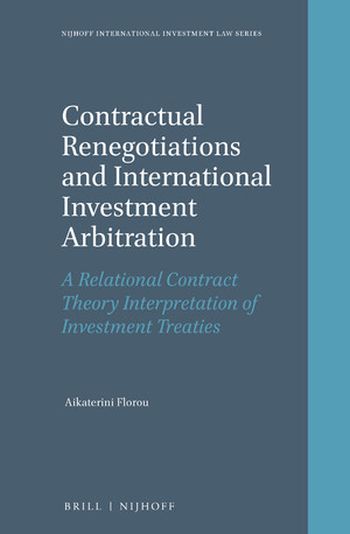
In Contractual Renegotiations and International Investment Arbitration, Aikaterini Florou explores the sensitive issues of renegotiating state contracts and the relationship between those contracts and the overarching international investment treaties. By introducing novel insights from economics, the author deconstructs the contract-treaty interaction, demonstrating that it is not only treaties that impact the underlying contracts, but also that those contracts have an effect on the way the open-textured treaty standards are interpreted. The originality of the argument is combined with an innovative interpretative methodology based on relational contract theory and transaction cost economics.
Departing from the traditional emphasis of international lawyers on the text of investment contracts, Florou shows instead that such contracts are first and foremost “economic animals” and the theory of obsolescing bargaining does not paint a full picture of the contract-treaty interaction.